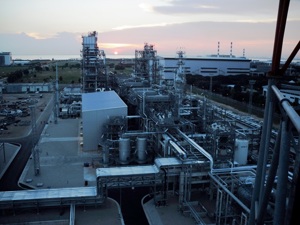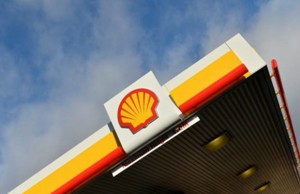The downstream rundown: In case you missed it 7/15
In case you missed any downstream news, here are the top stories from last week.
MHIENG wins contract for a FEED study relating to CO2 capture
Mitsubishi Heavy Industries Engineering, Ltd. (MHIENG), part of Mitsubishi Heavy Industries Group, awarded a Front End Engineering Design (FEED) study of a CO2 capture plant applied to natural gas fired gas turbines for a repowered combined cycle (GTCC) power plant in Alberta, Canada from Capital Power Corporation, a power generation company based in Canada. MHIENG has achieved the world’s top share of the market with its CO2 capture technology and has received high praise for its performance and expertise in this area.
The objective of this FEED study is to implement the CO2 capture plant at the repowered Genesee Generating Station Units 1 & 2, owned by Capital Power in Alberta. MHIENG’s “Advanced KM CDR Process” will be deployed at these stations. The total expected amount of captured CO2 will be approximately 3 MMtpy. The captured CO2 will be transported and sequestered underground. For the execution of the FEED study, MHIENG partnered with Kiewit Energy Group Inc., a major North American construction and engineering company and both companies will work together with Capital Power for realization of the Carbon dioxide Capture and Storage (CCS) project.
FPT Industrial powers the first LNG trucks on Indian roads
FPT Industrial and Blue Energy Motors have signed an agreement with the goal of deploying the very first LNG trucks in India, powered by FPT N67 NG BSVI compliant engines, on the country’s roads by the end of the year.
Headquartered in Pune (India), Blue Energy Motors is a Zero Emission truck technology company engaged in manufacturing of clean energy trucks, and its vision for LNG truck production involves partnerships with world-class suppliers such as FPT Industrial.
The companies are both committed to an active and swift decarbonization path in the commercial transport segment, and share the same strong belief that LNG trucks are a sustainable option for the market.
Clariant’s SynDane catalyst chosen for Wanhua’s new world-scale maleic anhydride plan
Clariant has been awarded a major contract by Wanhua Chemical Group to supply catalysts for its new maleic anhydride plant, which will be one of the largest in the world.
Designed to produce 200 kilotons of maleic anhydride annually, the plant will rely on Clariant’s SynDane catalyst for the production process. The facility will be located in Yantai city, Shandong province, and is scheduled to commence operation in 2023.
Also based in Yantai, Wanhua is one of the largest chemical producers in China and is among the top 30 chemical producers globally by 2020 sales. The Wanhua plant will be the first to use a new maleic anhydride production technology.
Neste delivers first ever CORSIA certified SAF to American Airlines
For the first time in aviation history a CORSIA certified batch of sustainable aviation fuel (SAF) was delivered to a commercial airline. Neste, the world’s leading SAF producer, delivered a batch of its Neste MY Sustainable Aviation Fuel to American Airlines at San Francisco International Airport. This was part of a pilot to certify SAF as a CORSIA eligible fuel that can be used by an airline to meet its emissions obligation under CORSIA.
The Carbon Offsetting and Reduction Scheme for International Aviation (“CORSIA”) is a carbon offset and carbon reduction scheme to lower CO2 emissions for international flights, to curb the aviation impact on climate change. It was developed by the International Civil Aviation Organization (ICAO). But until now, no airline in the world has taken delivery of CORSIA-certified SAF, making this delivery a first.
bp and thyssenkrupp Steel work together to advance the decarbonization of steel production
bp and thyssenkrupp Steel announced they have signed a memorandum of understanding (MoU) focused on the development of long-term supply of low carbon hydrogen and renewable power in steel production, helping accelerate the steel industry’s wider energy transition.
thyssenkrupp Steel accounts for 2.5 percent of CO2 emissions in Germany, mainly at the Duisburg site where the main emitters, the blast furnaces, are operated. By replacing the coal-fired blast furnaces with direct reduction plants where iron ore is reduced with low-carbon hydrogen, thyssenkrupp Steel intends to make steel production climate-neutral in the long term.
Shell Chemicals Park Moerdijk accelerates transition to become net zero emissions and produce more sustainable chemicals
Shell Chemicals Park Moerdijk, a subsidiary of Shell, announced a new investment that supports its plan to transition the chemicals park into a site able to serve the changing needs of the customers. Customers want more low-carbon products and products made using recycled material. Shell Moerdijk will build a new pyrolysis oil upgrader unit that improves the quality of pyrolysis oil, a liquid made from hard-to-recycle plastic waste and turns it into chemical feedstock for its plants. The investment marks a first major step in transitioning the park, within ten years, by increasing the use of circular and bio-based feedstocks, growing its offer of low-carbon products and becoming net-zero emissions through the application of hydrogen and CCS.
To achieve these ambitions, Shell intends to invest billions in Shell Moerdijk's chemical complex over the next decade, subject to investment decisions and within existing capital allocation frameworks.
Lummus Introduces Industry's first net zero ethane cracker
Lummus Technology announced the launch of a major enhancement to its leading ethane feed steam cracker that is capable of achieving zero CO2 emissions from an ethylene plant. Lummus developed this next generation design as part of its comprehensive strategy to reduce greenhouse gas emissions from all of its technology offerings.
Shell wants to share more of its blockbuster profits, CEO says
Shell is considering boosting shareholder returns on the back of bumper profits from soaring energy prices, while the extra cash will also help it shift more swiftly towards renewables and low-carbon energy, the chief executive said on Thursday.
Europe's largest oil and gas company, as well as rivals including BP, have seen profits surge this year following two years of declining revenues due to the pandemic.
CEO Ben van Beurden and Shell's board have been deliberating for months over what to do with the unexpected profit bonanza that began with the recovery from the pandemic and which was then spurred on by Russia's invasion of Ukraine.
bp aims to start producing SAF in Australia by 2025
bp is aiming to start producing sustainable aviation fuel (SAF) in Australia by 2025 after converting its oil refinery near Perth to produce renewable fuels, a senior executive of the British company said.
The project is expected to cost "hundreds of millions" of dollars, BP's Asia Pacific vice president of low-carbon solutions, Lucy Nation, told Reuters.
bp has not disclosed what volume it plans to produce, but Nation said output would depend on demand as the facility would be able to switch day-to-day between producing sustainable aviation fuel and biodiesel.
Green Fuels for Denmark receives IPCEI status
Green Fuels for Denmark is being developed by Ørsted in partnership with leading off-takers in heavy road transport (DSV), shipping (Maersk and DFDS), and aviation (Copenhagen Airports, SAS). The Danish government has earmarked a total of DKK 850 MM of funding for the two shortlisted projects.
The funding will help enable the consortium behind Green Fuels for Denmark to develop the first phases of the project as part of the industrialization of renewable hydrogen and green fuels needed to compete with fossil-based alternatives.









Comments